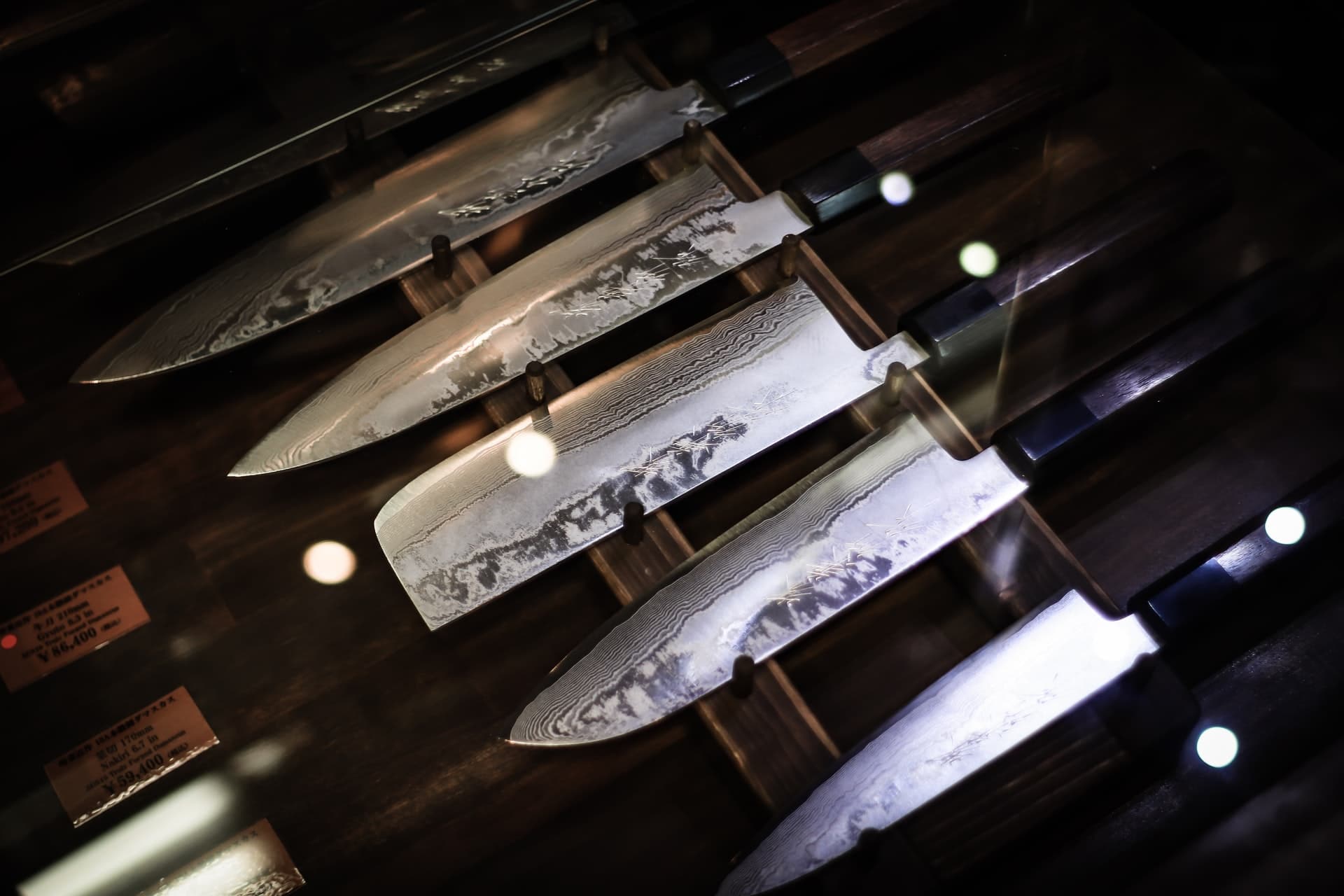Damascus steel refers to the special, reinforced steel used by knife manufacturers in Asia (mostly) for different knife lines, from commercial knives to professional chefs’ knives. There is a lot of noise right now about how durable Damascus steel is.
Damascus steel edge retention is also advertised constantly on Amazon and other online retail channels because the best Damascus knives supposedly have better edge retention than typical steel used for regular knives. Damascus steel hardness is certainly one of the biggest come-ons for buying Damascus steel knives for the first time. But does the carbon Damascus steel knife truly live up to the hype? Let’s find out.
Does Damascus Steel Hold a Good Edge? Damascus Steel vs. Carbon Steel Knives
The short answer is yes; Damascus steel does hold a good edge over time. There is a reason why Damascus steel is used for hunting knives and general utility knives, apart from their work in being the prime steel for kitchen knives. Damascus steel is amazing for general work and rough use, and the edge will hold over time despite impact and heavy use.
Carbon steel knives are often less expensive and are preferred for cutting wood and other tasks because it is harder than Damascus steel. However, in terms of performance, we can say that these two are almost equal because Damascus steel has an advantage in craftsmanship.
The Damascus steel that we have now is not the ancient Damascus steel produced in India. The actual methods have already been lost to time. But what the modern forging methods are close to what is known of the ancient Damascus blades.
No two Damascus blades will ever be the same, which adds to the intrigue of owning a durable Damascus knife. If you want a special knife with its own unique, wavy pattern that cannot be replicated, then perhaps a new Damascus knife set is the right choice for you.
Is Damascus Steel Good for A Knife?
While it is always a personal choice as to what type of steel will be going into your kitchen (or hunting pack), there is absolutely nothing wrong with Damascus steel knives. Some people say that it’s all hype and that Damascus steel isn’t worth it. Our take on it is this: there is a reason people are buying and are continuing to buy more Damascus steel knives.
Damascus knives are sharp, and they’re useful in the kitchen – these two reasons are all you need to know, truly, if you are asking about the usefulness of Damascus steel in the kitchen. Like we said earlier, Damascus steel has a long and hard-wearing steel edge that doesn’t give up easily. If you are cutting meat and chopping up vegetables, you can expect your Japanese Damascus steel knife to last for a long time.
Specialty artisans craft Damascus steel knives, and at the same time, the edges are precision-sharpened by computers with laser technology. So the technology of combing steel with other metals might be taken from Damascus steel’s history; the rest of the manufacturing process is already very modern to arrive at consistent and dependable results. So the claim that Damascus knives are pure hype is incorrect and is a disservice to folks who use their Damascus knives day in and day out to complete tasks in the kitchen.
Why Is Damascus Steel So Special?
The first aspect that you will likely notice about the Damascus steel is the “rose” or “swirling” pattern of steel on the surface. Damascus steel is a pattern-welded steel type that originates from the Middle East and South Asia (specifically, India).
Damascus steel is different from Wootz steel, which bears some superficial similarities but is forged using another technique. In terms of physical composition, Damascus steel was manufactured with a similar technique to how plastic is made in modern times.
Not to confuse readers here, but Damascus steel is created using metal billets. The modern Damascus knives are made from mostly steel. In the past, however, Damascus knives could have been made from other types of metal.
The ingots and billets used to create Damascus knives are folded repeatedly to increase the surface area of the metal and create a finer and sharper edge. With modern technology, it is now possible to fold a metal over fifty times easily. As for the edge itself, that’s up to the person’s method of forging the metal.
What is interesting in this junction is the fact that not all stainless steel blades have great edges. No matter what type of steel you have, if the manufacturer does not know how to create powerful edges that will withstand daily use, then the steel knife ends up becoming an inferior blade. Knife collectors and enthusiasts know as much that a knife is only as good as its edge.
With the Damascus steel knife, you’re going to get a good edge plus good edge retention. Retention refers to the capacity of the edge of a knife to maintain its sharpness despite the punishment you’re giving the knife. The more you use any knife, the duller it gets over time, and in the end, you need to get it sharpened and maintained, too.
As for performance, Damascus knives are favored in the kitchen because the swirling patterns on the surface of the metal prevent stuff from sticking to the sides of the blade while it is cutting. So if you want a smoother cutting experience throughout, the Damascus steel knife can give you that experience easily. Damascus steel is forged with carbon as well, and this creates nanotubes of carbon that add to the durability of the knife no matter how heavy you use it. Carbon has always been essential to forging genuine Damascus steel knives properly.

